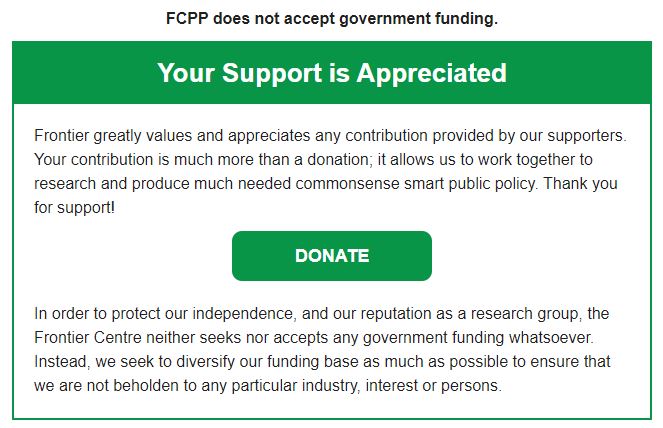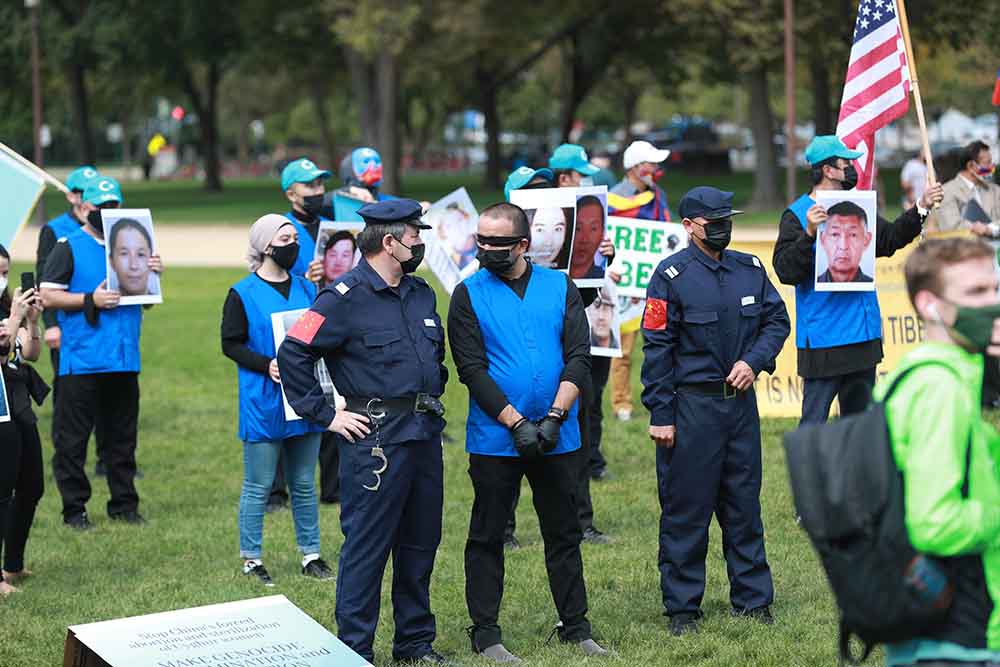December 9 marked the International Day of Commemoration and Dignity of the Victims of the Crime of Genocide and of the Prevention of this Crime. December 9, 2020 also marked the 72nd anniversary of the 1948 Convention on the Prevention and Punishment of the Crime of Genocide and recognizes the duty to prevent and punish this crime.
The Convention on the Prevention and Punishment of the Crime of Genocide 1 was drafted on December 9, 1948, entered into force in 1951, and was signed by Canada on September 3, 1952. The Genocide Convention was the first human rights treaty adopted by the United Nations General Assembly. The Convention committed to never again allowing the atrocities of the Second World War to be repeated, and to punish any perpetrator whether they are constitutionally responsible rulers, public officials, or private individuals.
December 9, 2020 was once again marked by well-written speeches, statements, and new commitments by officials everywhere. It is their moral duty, it is their office, it is what is expected they should do. The reality is that despite over 70 years of the Convention, statements and commitments did little to prevent Rwanda, Cambodia, Srebrenica, Myanmar, Syria, or now Eritrea, among so many others.
At the International Day of Commemoration in Memory of the Victims of the Holocaust in 2017 UN Secretary-General António Guterres said:
It would be a dangerous error to think of the Holocaust as simply the result of the insanity of a group of criminal Nazis. On the contrary, the Holocaust was the culmination of millennia of hatred and discrimination targeting the Jews—what we now call anti-Semitism.”2
History has shown that genocides do not start with gas chambers or massacres. Genocide is the outcome of nationalistic, populist movements that tolerate hate speech, discrimination, incite violence, and dehumanize the other. The holocausts in Rwanda, Cambodia, Srebrenica, Armenia, and Myanmar are just some of the more well-known, at least to those who are either interested or those whose lives were touched by these events. The reality is that even these horrific events are largely forgotten, gently pushed back into the archives of our memories, and only held above the unconscious because of some normative sense of responsibility to commemorate them, some officious societal duty. After the ceremonies, we can go back to our lives, forget the past, forget history’s lessons, and worse, ignore our complicity in the emergence of new atrocities.
So what should we make of the persistence of human rights abuses, the proliferation of internment camps, forced sterilization, enslaved labour, the sale of products made by or from those in internment,3 and mass surveillance that abound around the globe today?
Unfortunately, too few (the general electorate) who actually impact public policies and the national agendas of their politicians are aware of the victimization of hundreds of thousands occurring today. Safe in this knowledge, politicians and bureaucrats can therefore make statements and commitments, knowing it is unlikely that they will receive any un-deflectable blame for their inaction and wilful blindness.
In fact, it’s unlikely that most people would have even been aware that December 9 marked the International Day of Commemoration and Dignity of the Victims of the Crime of Genocide and of the Prevention of this Crime. It was hardly mentioned in most papers, not talked about on the radio, and not reported on most of the major news broadcasts. Notwithstanding a legal obligation, we citizens and the politicians we elect have a moral obligation to respond to our commitments, to become aware, to monitor, to self-educate, and to continually move the bar of humanity to a higher standard, to lift others less fortunate with us as our own standards improve.
At the 2005 World Summit, member states committed to protecting their populations from genocide, war crimes, ethnic cleansing, and crimes against humanity, as well as against the incitement of same.4 They agreed that when states need help to fulfil that responsibility, the international community must be ready to assist them, and when states manifestly fail to protect their populations from those crimes, the international community must be ready to take action, collectively, in accordance with the United Nations Charter. Intervention, therefore, is expected when prevention fails. Prevention is the basis of the principle of the responsibility to protect.5
Numerous countries today are failing to prevent, and are even inciting, crimes against humanity. And once again, it would be an error to think of human rights abuses, systemic persecution of minorities, and genocide as simply the result of the insanity of a group of criminals. On the contrary, atrocities are the culmination of unchecked hatred and discrimination targeting the vulnerable, and more importantly, the result of the observer’s wilful blindness and complacency.
Today, there are undeniable signs of the rise of extremism, of nationalism, and systemic persecution of large segments of peoples around the world. Among the many, the two that require special attention are the rising powers of China and India.
If left unaddressed, the rising extremism and persecutions in India and China will undermine the well-being of millions of people, as well as set a precedent which the international community will regret for generations, both in terms of the human cost and the undermining of many gains made in human rights over the past several decades.
There is now verifiable evidence of state-sanctioned persecution of hundreds of thousands of Uyghur citizens in Xinjiang and the eastern Turkestan region of China. According to the U.S. State Department, 800,000 to possibly more than two million Uyghurs have been interned for religious behaviour deemed “extremist,” such as having an “abnormal” beard, wearing a veil, accessing religious materials online, or participating in other “illegal” religious activities.
The International Consortium of Investigative Journalists (ICIJ) has obtained classified Chinese government documents, including a memo sent by Zhu Hailun, the deputy secretary of Xinjiang’s Communist Party, with instructions that the camps should be run as high-security prisons, with discipline, punishment, and no escapes.
ICIJ has confirmed that the evidence of what the Chinese have called voluntary education centres reveals them to be high-security prisons for the arbitrary and systematic brainwashing of hundreds of thousands of Muslims. The evidence supports allegations of genocide against China’s top leadership.6
Here at home, the Subcommittee on International Human Rights of the Standing Committee on Foreign Affairs and International Development, led by the Ontario MP for Mississauga East–Cooksville, conducted its own investigation, including testimony from witnesses who survived the concentration camps. Committee witnesses described “deplorable” conditions including psychological, physical, and sexual abuse to force assimilation and indoctrination into the dominant Chinese culture. As a consequence of its findings, the subcommittee issued the following statements on October 21:
The Subcommittee shares concerns raised by witnesses and agrees that the Government of Canada needs to take immediate action and live up to the values it espouses at home and abroad. Canada must act now to address China’s aggression against Uyghurs and other Turkic Muslims. As stated by Nobel Peace laureate, Elie Wiesel: “Silence in the face of evil ends up being complicity with evil itself.”7
Canada has a responsibility to protect Uyghurs and other Turkic Muslims under the international norm that it helped to establish, the Responsibility to Protect, of which the objective is to ensure the international community prevents mass atrocity crimes of genocide, war crimes, ethnic cleansing and crimes against humanity. The Subcommittee was reminded that protection can come in many forms. This includes the use of sanctions.8
Beijing’s reaction was predictable. Zhao Lijian, a spokesperson for the Chinese foreign ministry, retorted that the “so-called genocide” is a rumour and a farce fabricated by some anti-Chinese forces to slander China, and that the statements were groundless and full of lies and disinformation. Zhao rejected the subcommittee’s findings as blatant interference in China’s internal affairs, warning parliamentarians to “avoid doing any further damage to China-Canada relations.”9
Undeterred, 64 members of Parliament, including the former Green Party leader, a substantial portion of the Conservative caucus, and two Liberal backbenchers signed a letter to the prime minister demanding that Canada levy sanctions against the regime in Beijing in response to human rights abuses perpetrated against Uyghurs. Signatories included the prime minister’s appointments to the Senate, Marilou McPhedran and Pierre Dalphond.10
China is clearly emboldened by its emerging international influence and not shy to bully its critics into compliance, whether on matters of political, economic, or strategic interests to China.
An increasing number of countries are now contending with the colossal bullying power of an emergent China. As potent as its military is, China’s economic might and access to its colossal consumer market have become even more powerful weapons in its manoeuvre to become a dominant superpower.
Countries that are willing to turn a blind eye to China’s internal affairs can expect practical benefits in the form of access to China, while those that don’t can expect sanctions and isolation. Further to its position as a military and economic emergent superpower, China holds a permanent seat on the United Nations Security Council. These three (military, economic, and Security Council) influences form the tips a powerful and potentially dangerous trident.
Canadians have first-hand experience of China’s wrath as a consequence of the arrest of Huawei’s CFO Meng Wanzhou. She was arrested in accordance with the Mutual Legal Assistance Treaty, to which both Canada and China are signatories. Nonetheless, China has sought extrajudicial consideration in Meng’s release to circumvent her extradition to the United States. In retaliation for Canada’s adherence to the treaty, China has detained Michael Kovrig and Michael Spavor since December 2018. China has also initiated trade action against Canadian farmers.
Chinese sanctions have also targeted Australia. China placed substantial tariffs on Australian wine, sugar, barley, and lobster, and obstructed Australian coal and beef shipments in 2020.11
In October 2020, China detained Cheng Lei, an Australian citizen and high-profile host for China’s English-language broadcaster CGTN, on suspicion of endangering national security. ABC reporter Bill Birtles and the Australian Financial Review’s Michael Smith were both rushed home on the advice of diplomats following intelligence of their impending detention.12
In Berlin, Wang Yi, China’s foreign minister, threatened Czech senate speaker Miloš Vystrčil over his visit to Taiwan, saying Vystrčil would “pay a heavy price for his short-sighted behaviour.” At the same press conference, however, German foreign minister Heiko Maas put Wang on notice by stating that “in the European Union, we deal with our international partners together and with respect, and threats do not fit into that approach.”
China is also aggressively engaged in economic expansion throughout Africa and Latin America for strategic access to resources, while carrying out its Belt and Road Initiative in Eurasia.
These geopolitical and economic factors have slowed countries like Canada and Australia from speaking up against China’s human rights violations. This is a cost-benefit analysis that can dilute the moral imperatives and ethical commitments to prevent crimes of genocide.
So far, the message to China has been delivered softly despite China’s blatant disregard for human rights.13 It’s the same old challenge—moral commitments are not absolute; they are purchased by expediency, politics, and above all, by profit. But we must be aware that complacency, especially in the face of overwhelming evidence, diminishes our own values, integrity, and principles. It lessens our humanity, and casts us as enablers at the best and complicit at the worst. Failure to respond effectively and decisively means that the Chinese example will embolden others with similar agendas.
Despite Canada’s suspension of its extradition treaty with Hong Kong following the imposition of Beijing’s national security law for Hong Kong, the statement by the House of Commons subcommittee on China’s mistreatment of Uyghurs, and the upholding of international agreements and legal and judicial integrity in Meng’s arrest, China has not yet indicated any sensitivity to international concerns.
Joseph Borrell, foreign policy chief for the European Union (EU), notes that the EU has grown “more realistic and assertive” in its approach to China. Talks on a new investment treaty have stalled over what the Europeans see as unfair obstacles facing their companies in China. A litany of European grievances over a lack of reciprocity in trade and economic relations has come to a head at a time when Chinese human rights abuses, in Xinjiang in particular, have dominated the headlines. In July, the EU imposed sanctions on China over its treatment of Hong Kong, and in May the bloc’s diplomatic arm accused China of running a “global disinformation campaign” to deflect blame for the COVID-19 pandemic and improve its international image.14
During Wang’s visit to Rome in September of last year, his Italian counterpart, Luigi Di Maio, publicly chastised him over Beijing’s crackdown in Hong Kong. In Paris, President Emmanuel Macron also chastised Wang for the situation in Hong Kong and for human rights abuses perpetrated against the Uyghur population in Xinjiang.15
Canada has so far held a steady hand in aiming and leading a measured and co-ordinated response to China’s human rights violations, an approach that may have to be reconsidered.
In the Asian hemisphere, Australia, Japan, America, and India have initiated the “quadrilateral dialogue” or “the Quad” to counter China’s increasing sphere of influence, including its claims in the East China Sea and incursions near islands controlled by Japan, Vietnam, and Malaysia. The Quad is strengthening its alliance through naval exercises, logistical support, and sharing of technological and geospatial intelligence.16
However, the Quad seems to ignore the fact that India too has demonstrated increasing disregard for human rights. A case in point is the Delhi communal riots last winter that left 53 dead. During these riots, increasingly partisan civil servants, including members of the ruling Bharatiya Janata Party (BJP) and Delhi police, were complicit in inciting violence against mostly Muslim protesters engaged in peaceful demonstrations against a new religion based on citizenship law.17 
The Indian government’s unilateral actions in Jammu and Kashmir have caused enormous suffering and rights violations, failed to protect religious minorities, and instituted draconian sedition and counterterrorism laws to silence peaceful dissent.18
In October, intent on squelching any independent scrutiny of India’s human rights problems, the BJP government froze Amnesty International’s assets. The government was irritated by Amnesty’s unfavourable reports on recent riots in New Delhi, human rights abuses in Jammu and Kashmir, and the passage of legislation that could adversely affect Muslims. The government claimed that Amnesty was in violation of Indian law.19 And now India too has begun construction of its own mass detention centres, stoking long-simmering religious tensions and widening a battle that could see citizenship revoked for millions of people.20
According to Human Rights Watch’s World Report 2020, mob violence against minorities, especially Muslims, by extremist Hindu groups affiliated with the ruling BJP continued throughout the year, amid rumours that the Muslims traded or killed cows for beef. Since May 2015, 50 people have been killed and over 250 people injured in such attacks. Muslims were also beaten and forced to chant Hindu slogans. Police failed to properly investigate the crimes, stalled investigations, ignored procedures, and filed criminal cases against witnesses to harass and intimidate them.21
According to Freedom House, there has also been a marked attack on the press under Prime Minister Narendra Modi’s government. Authorities have used security, defamation, sedition, and hate-speech laws, as well as contempt-of-court charges, to curb critical voices in the media. Hindu nationalist campaigns aim to discourage forms of expression deemed “anti-national.” Journalists risk harassment, death threats, and physical violence in the course of their work. Such attacks are rarely punished, and some have taken place with the complicity or active participation of police. According to the Committee to Protect Journalists, five journalists were killed in connection with their work in 2018, and four in 2017.22
The annual report by the United States Commission on International Religious Freedom (USCIRF) places India alongside Pakistan, China, and North Korea. USCIRF has identified India as a “country of particular concern,” since the BJP was re-elected.23
India’s inclusion in the new axis for controlling China’s influence across Asia and the Pacific has unintended consequences. There are increasing concerns that India is sleep-walking into authoritarianism under the influence of Modi’s politics of religious polarization and renewed nationalism.24 India is likely to be emboldened by its necessary inclusion as a geopolitical counter-balance to China—an unintended consequence of a cost-benefit analysis that will undoubtedly have negative repercussions for millions of citizens.
Canada has been a leader in advancing democracy, and promoting and protecting human rights globally. Canada is an active and integral participant with the United Nations Human Rights Council (UNHRC), Commonwealth, La Francophonie, the Organization of American States (OAS), the G7, and the Organization for Security and Co-operation in Europe (OSCE).25
Canada and other middle powers can expect to be increasingly tested on their resolve to protect and enforce agreements and standards of human rights around the world, but conditions in China and India will take on a scale and challenges of their own, and cannot be neglected without widespread consequences.
While December 9 marked the International Day of Commemoration and Dignity of the Victims of the Crime of Genocide and of the Prevention of this Crime, December 10 marked International Human Rights Day.
The good news is that the EU has just announced its European Union Global Human Rights Sanctions Regime, the first of its kind.26 This agreement enables the EU to target serious human rights abuses and violations worldwide, sending a clear signal to those responsible for any violations about the EU’s strong commitment to human rights. Perpetrators can be banned from entering the EU, their assets in the EU frozen, and EU persons prohibited from making any funds available to them.
While governments and institutions for the advancement of human rights must do their part, it is up to citizens to be informed, to advocate for policies that reflect and promote our national interest and values, to speak up and be heard, and to advance the work of human rights institutions around the world.
Anil Anand is a research associate with the Frontier Centre for Public Policy. Anil served as a police officer for 29 years. During his career, some of his assignments included divisional officer, undercover narcotics officer, and intelligence officer. He has worked in professional standards, business intelligence, corporate communications, the Ipperwash Inquiry (judicial public inquiry), and Interpol.
Photo by Kuzzat Altay on Unsplash.
Dedicated to all those who give of themselves to safeguard human rights everywhere, and to the memories of all the victims of human rights abuses and genocide everywhere.
[show_more more=”SeeEndnotes” less=”Close Endnotes”]
- Convention on the Prevention and Punishment of the Crime of Genocide.
- Guterres, António. The Holocaust and the United Nations Outreach Programme, United Nations, https://www.un.org/en/holocaustremembrance/ Accessed: December 12, 2020.
- Robertson, M.P., R.L. Hinde, and J. Lavee. “Analysis of Official Deceased Organ Donation Data Casts Doubt on the Credibility of China’s Organ Transplant Reform.” BMC Med Ethics 20, 79 (2019). https://doi.org/10.1186/s12910-019-0406-6.
- The Global Centre for the Responsibility to Protect, https://www.globalr2p.org/what-is-r2p/.
- International Day of Commemoration and Dignity of the Victims of the Crime of Genocide and of the Prevention of this Crime, December 9, The United Nations, https://www.un.org/en/observances/genocide-prevention-day.
- International Consortium of Investigative Journalists (ICIJ) https://www.icij.org/investigations/china-cables/.
- “Statement by the Subcommittee on International Human Rights Concerning the Human Rights Situation of Uyghurs and Other Turkic Muslims in Xinjiang, China,” Subcommittee on International Human Rights of the Standing Committee on Foreign Affairs and International Development, Ottawa, October 21, 2020; Accessed: December 2, 2020. https://www.ourcommons.ca/DocumentViewer/en/43-2/SDIR/news-release/1090319.
- Ibid.
- Ibid.
- Tasker, John Paul.““Dozens of MPs, Senators Call for Sanctions against China over Human Rights Abuses,” CBC, July 14, 2020. Accessed: December 7, 2020. https://www.cbc.ca/news/politics/mps-senators-letter-sanctions-china-1.5649042.
- “China Slaps up to 200% Tariffs on Australian Wine,” BBC News, November 27, 2020. Accessed: December 7, 2020. https://www.bbc.com/news/business-55097100.
- “Cheng Lei: China Says Journalist ‘Endangered National Security’,” BBC News, September 8, 2020. Accessed: December 7, 2020.
- Mac Cormaic, Uadhán. “Why the EU is Going Cold on China.” The Irish Times, December 8, 2020. https://www.irishtimes.com/opinion/why-the-eu-is-going-cold-on-china-1.4346889. Accessed: December 8, 2020.
- Ibid.
- Ibid.
- “Banyan: Quad Stretches,” The Economist, November 21, 2020.
- “Briefing: Democracy in India,” The Economist, November 28, 2020.
- “India: Mounting Human Rights Abuses…”
- Ganguly, Sumit. “The Death of Human Rights in India?” Foreign Policy, October 2, 2020. https://foreignpolicy.com/2020/10/02/the-death-of-human-rights-in-india/. Accessed: December 8, 2020.
- Pradham, Bibhudatta. “Millions in India Could End Up in Modi’s New Detention Camps,” Bloomberg, February 25, 2020. https://www.bloomberg.com/features/2020-modi-india-detention-camps/. Accessed: December 8, 2020.
- Human Rights Watch. “World Report 2020 Events of 2019.” (2020). https://www.hrw.org/world-report/2020. Accessed: December 8, 2020.
- Freedom House. “Freedom in the World—India Country Report 2020,” https://freedomhouse.org/country/india/freedom-world/2020. Accessed: December 8, 2020.
- “United States Commission on International Religious Freedom.” (2019 Annual Report): 174. https://www.uscirf.gov/sites/default/files/2019USCIRFAnnualReport.pdf. Accessed: December 8, 2020.
- “Banyan: Quad Stretches,” The Economist, November 21, 2020.
- Government of Canada. “Canada’s Approach to Advancing Human Rights,” https://www.international.gc.ca/world-monde/issues_development-enjeux_developpement/human_rights-droits_homme/advancing_rights-promouvoir_droits.aspx?lang=eng.
- Borrell, Joseph; “Foreign Affairs Council: Remarks by the High Representative/Vice-President,” press conference, December 7, 2020. https://eeas.europa.eu/headquarters/headquarters-homepage_en/90039/Foreign%20Affairs%20Council:%20Remarks%20by%20the%20High%20Representative/Vice-President%20Josep%20Borrell%20at%20the%20press%20conference. Accessed: December 10, 2020.
[/show_more]



